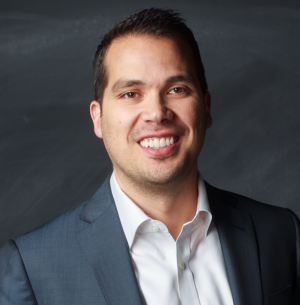
Jeff Sessions (Generated by JG JPEG Library)
Awkward silence. That’s how former FBI director Jim Comey described the seconds after President Trump allegedly asked him for loyalty at the infamous Green Room dinner. And awkward silence is what followed from Attorney General Jeff Sessions, after being publicly humiliated by Trump. (Sessions has since made brief comments on the situation, saying it hasn’t been the “best week” in his relationship with the president.)
Sessions’s crime? Disloyalty, specifically his recusal from the ongoing Russia investigation, which Trump says was “very unfair to the president.” Trump has stuck Sessions’s head on a stick for all to see as a reminder of what’s expected in a Trump White House.

Meet Me At ILTACON: Opus 2 And AI Workbench
Swing by Booth 800 for a look at the latest in AI-powered case management.
Sessions is hardly the first supporter Trump has kicked to the curb. Chris Christie has gone from star campaign surrogate to hungry orphan moppet pawing at the window. Recently resigned press secretary Sean Spicer, a devout Catholic, was famously snubbed from getting a chance to meet the Pope when Trump tired of him. And chief of staff Reince Priebus — oh, poor Reince. New communications director Anthony Scaramucci told New Yorker correspondent Ryan Lizza on Wednesday that Priebus, the man Scaramucci called a brother less than a week ago, is a “f—— paranoid schizophrenic, a paranoiac.” Ouch.
There appear to be only two things that can secure one’s place in the Trump administration. The first option, and by far the best if you can swing it, is to be related to him. Trump’s family members seem to be largely immune to Trump’s ups and downs. If you can’t get an invitation to Thanksgiving dinner at Mar-a-Lago, the only other sure bet seems to be blind, unquestioning loyalty to whatever version of reality the president is pitching on a given day. Scaramucci, Kellyanne Conway, Sarah Huckabee Sanders, and Stephen Miller are the four horsemen of the fact-pocalypse, seemingly willing to commit to anything and everything that serves the interests of the commander-in-chief, and equally willing to fall on their swords when Trump changes his mind a day or two later. All four are, in Trump’s view of the world, loyal.
In sharp contrast to Trump loyalty is what I’ll call “trial lawyer loyalty.” Trial lawyers, the name still most commonly used to refer to members of the plaintiffs’ bar, don’t get to pick and choose clients. Trial lawyers don’t typically draw clientele from the world of the wealthy and sophisticated; most are everyday people who can’t afford to pay a lawyer by the hour. And when you represent folks from every social stratum, from every walk of life, you get some characters. Criminal backgrounds, unsavory professions, Scaramucci-like vulgarity — all par for the course. The fact that trial lawyers can earn a handsome contingent fee by representing a broad cross-section of people certainly helps make them more forgiving of client shortcomings. But my experience is that for most trial lawyers, it really isn’t all about the benjamins; bar members take great pride in the fact that they get to roll up their sleeves and work for everyday people with real problems.
There’s a key difference between the relationship of trial lawyers and their clients as compared to Scaramucci, Conway, Sanders, and Miller’s relationship with the man they represent. It’s the difference between blind Trumpian loyalty and, to use another Comey-ism, “honest loyalty.” Lawyers know the weaknesses their clients bring to the table; they recognize them; they call them out. In the best of situations, they help those clients address and improve those weaknesses. It’s based on genuine affection and concern for their clients that trial lawyers are willing to lay it all on the line – risking time and money on a case that often amounts to a coin flip.

Reasoning, Tool Calling, And Agentic Systems In Legal LLMs
Domain-specific AI provides accuracy and reliable legal reasoning.
It’s loyalty earned, not loyalty demanded.
The honest loyalty of trial lawyers extends not only to clients, but also to lawyers within the bar. Let’s face it, plaintiffs’ lawyers are a colorful bunch on a good day, and the practice attracts its fair share of wild-and-woolly types that are sometimes prone to wishful thinking and bad judgment. Plaintiffs’ lawyers don’t ignore those bad decisions, and we will certainly not abide those who knowingly harm others. But neither will we let our colleagues be solely defined by the worst mistake they ever made.
I once went to a plaintiffs’ attorney convention where the keynote speaker was a formerly prominent lawyer who had been disbarred after conviction for a white-collar crime. He swore during his speech that he never intended to commit a crime, but was equally open about the fact that he had earned his time behind bars. In most circles, a man like this would be ostracized, shamed, and labeled a disgrace to the profession. The plaintiffs’ bar didn’t shun him, though. It welcomed him back, dusted him off, and gave him a platform to tell his story to prevent his comrades-in-arms from making the same mistakes.
The keynote speaker isn’t alone. I’ve seen a plaintiffs’ attorney tell a roomful of co-workers a cautionary tale about the statute of limitations they blew years back that lost them a massive case and jacked their malpractice insurance through the roof. I’ve seen a plaintiffs’ attorney go on the lecture circuit, speaking on how he failed to effectively oversee his practice – leading to a series of calamitous events that almost ended his legal career. You don’t get kicked out of the plaintiffs’ bar for making a mistake like that. You own up to it, you make yourself better, and you make the people around you better.
Being blind to your own sins, or the sins of those around you, is no virtue. But being willing to hold yourself and others accountable without writing them off entirely is a valuable skill, and one the plaintiffs’ bar instills in its members almost without exception. When that once-jailed keynote speaker stepped in front of thousands of his former colleagues and finished telling us precisely how he’d messed up, there was immediate applause.
With the trial lawyers, when it comes to loyalty, there is no awkward silence.

James Goodnow
James Goodnow is an attorney, author, commentator and Above the Law columnist. He is a graduate of Harvard Law School and Santa Clara University. He regularly appears in the national broadcast and print media, including CNN, HLN, Forbes and more. You can connect with James on Twitter (@JamesGoodnow) or by emailing him at [email protected].